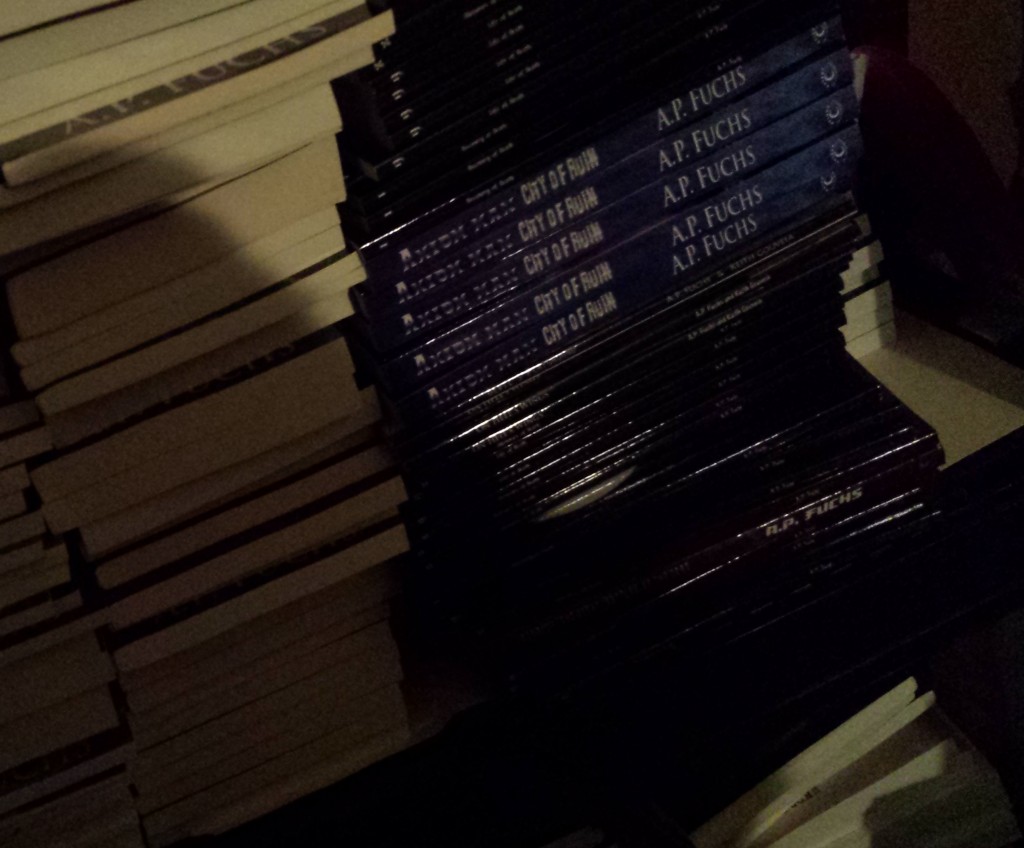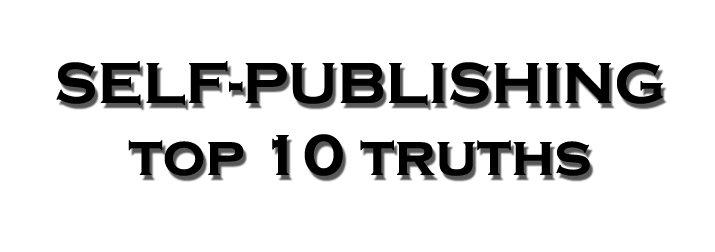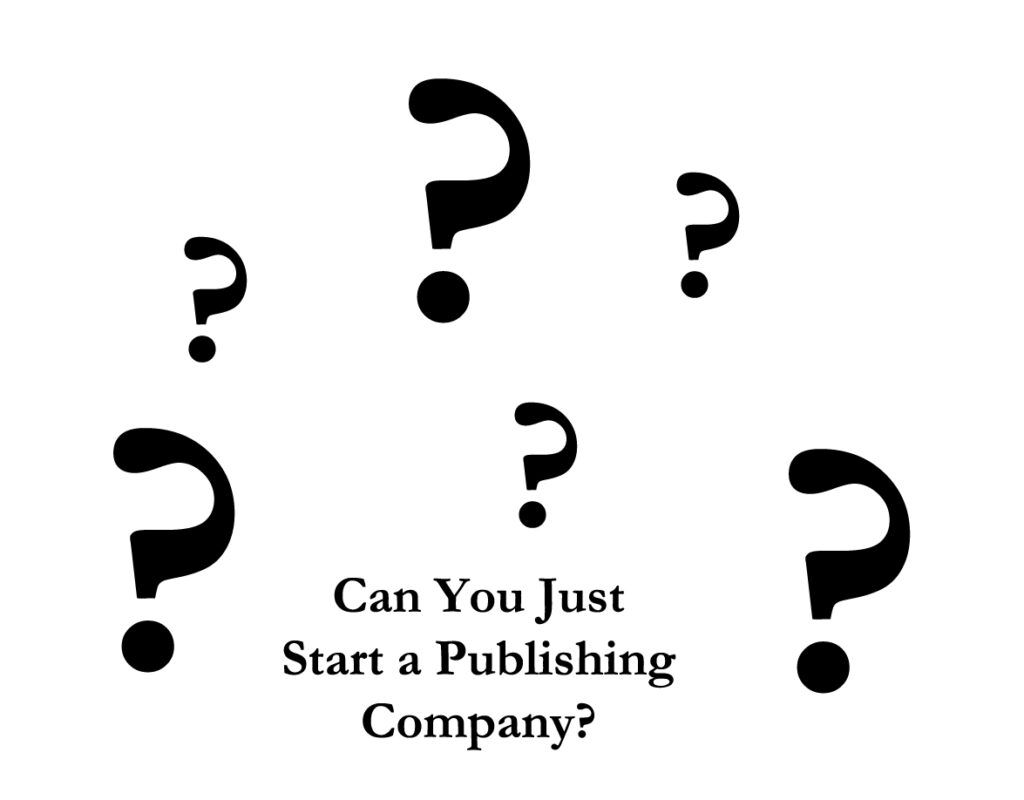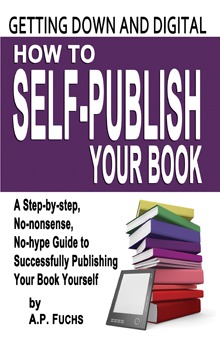Why I Quit the Publishing Industry and Opted to Just Make Books Instead
Well, we’ve really done it, haven’t we?
And we’re all to blame, every one of us.
Writers, editors, publishers, marketing departments.
Indie or traditional, we’re all guilty.
Some call this the Golden Age of Publishing and the best time to be a writer.
Still trying to figure out why. That is, why in the truest sense. Sure, the arguments are it’s easy to get your work out there and some of have made a goldmine. That’s not reason enough to give this era of publishing the labels we have.
For those who don’t know, I started writing my first book in 2000. I published it via a vanity press in 2003. Starting in 2004, I began self-publishing all my novels through my own company, my traditional “outbound” sales being short stories. Being independent back then was considered taboo and the kiss of death. If you publicly declared you published your own work, at least in writing and publishing circles, you weren’t a real writer and eBooks weren’t real books. You weren’t even a real publisher.
It bothered me for a few years, but then I didn’t care and proudly flaunted what I did. If you didn’t like it, too bad.
I made a name for myself in small press circles and became a minor local celebrity. Back in the beginning, back when I was writing that first book, there were a couple of months where I dreamed of fame and fortune. Not anymore. Don’t want it. But that’s another blog entry.
As my career progressed, I’ve seen writers come and go, publishers rise and fall, and the industry drastically change. I’ve made amazing friendships and networked with so many people, some of whom are very well known. I’ve stuck to the small press by choice and have dealt with the major league publishers while my publishing company was in full swing and I worked with other authors.
These days, I’m alone again. By choice. My meltdown in 2014 led to that and, in some ways, I’m still recovering.
That’s a quick history of where I’m coming from.
Back to why I decided to quit the publishing business: to be honest, I won’t no part of it. Not in the way it is right now. Over the past few weeks I’ve spoken to a several writers about how things are going. I’m paraphrasing, but they all said the same thing: not very good. Can’t get readers.
Over the months and recent years leading up to this past little while, I’ve heard the same thing. It’s getting progressively harder and harder to reach people and books can no longer–for most–be one’s sole source of income. And I’m not even talking massive money, to be clear. For many, making a thousand bucks off one’s books in a year is doing well. But to make a livable wage of, say, twenty or thirty thousand? Forget it.
Sure, there are genre exceptions. Erotica’s a big one. I know a guy who’s main love is horror, but that doesn’t pay the bills, so he writes pornographic books to make up the difference. Certain romance genres are also big. But other genre fiction from average Writer Joe? Forget it.
The market is flooded. Everyone is publishing a book these days, quality be damned. And those who do put in the time and effort and monetary investment for quality are just nameless voices on the wind. Some said the cream would rise to the top. I have yet to see it, and that statement was made years ago.
Heck, some readers are stopping reading independent titles altogether because they’ve been let down too many times. You don’t have a name that’s recognizable and one that can be counted on to deliver the goods? Back of the line, please.
That opening line to this entry? It’s true. Here’s what happened:
A certain on-line juggernaut was a good place to get books. There were many others, but this big on-line place was a favorite. They offered a few breaks, saved you some shipping, discounted things by a couple of bucks. It became a common place to refer people to. We all sent them there. Over and over again. The company grew–exploded–and came out with their own publishing platform. That caught like wildfire and stories of near-instant millionaires tickled the ears of writers everywhere. A little more time passed and everybody was publishing and everybody was referring people to this one place. Meanwhile, over the years on the side, other companies couldn’t compete and started shutting down. (Ever wonder why you go into a bookstore and a good chunk of it is dedicated to things other than books? There you go. Or what of the smaller publishing houses whose main bread and butter is government grants and not book sales?) Options became limited. And us writers kept pushing one platform, one retailer. Throw a flooded market on top of that and now things are falling apart.
(And you know it’s bad when you have big shot agents in NY telling you to self-publish instead.)
Writers don’t know what to do and fail to realize they’ve ruined their own careers by betting the majority of their chips on one avenue. Mankind’s shortsightedness, right? Look at other writer blogs that talk about writing and publishing. What are most of the articles about? How to sell books, score big at a certain on-line place, manipulate charts and cheat your way to the top all in the name of the almighty dollar.
Greed.
Pride.
Foolishness.
Oh sure, even if you’ve scored massive right now–who cares? You’re screwing Future You. If you’re really in this business for the right reasons–that is, you’re an artist and need an outlet and want to share it with people while supporting yourself at the same time–you should know by now this is a marathon not a sprint. Yet writers are sprinting and scrambling and are getting frustrated all the while not paying attention to how their actions today will affect themselves tomorrow.
Samhain Publishing is the recent high profile case of a publisher closing its doors. The reason? Like all businesses that have to say goodbye, they couldn’t fund the operation anymore. If you read their letter, which is on-line, the bulk of their sales came from one place and, when that market became tough, the money was no longer there to keep going.
Side note: Even those who are making a killing at this–it’s not a killing at all because they have one main outlet, even one main format. Take that away and what’s left? Not much else. That’s not success, in my opinion. Yours might be different. Success in publishing comes from doing well in the majority of the markets, not just one. Anyway . . .
Speaking generally, the mad dash for the dollar is the main culprit. Greed is the fall of mankind.
I was at a bookstore recently and I was disgusted by what I saw. Nearly every book on the shelf looked just like the one next to it. Not a single one caught my eye. Sure, some had neat-sounding titles, but strictly the covers? It’s like walking into Moore’s to buy a suit. They’re pretty much all the same save for a few differences in how the lapels are cut. But that’s marketing. That’s the big machine brainwashing people into telling them what they want. Romance covers look like this, thriller covers look like that.
Of course I realize I could very well be alone in this. My tastes are more into the unusual and books with covers that show genuine creativity and break boundaries are what get my attention. This goes for my comic book tastes, too.
So again, the machine, the big ocean of publishing. I’m just one measly fish in all this but everyone else wants to cater to the masses. They forget that we programmed the masses to accept things a certain way by doing things a certain way over and over.
Even books. We have genres. When a book’s genre is a snap to define, it’s marketable. Ask any writer who’s queried an agent or publisher. Have a different style of book where genres–even mediums–merge and it’s much, much harder. Seems we forgot people simply like stories and have instead forced those stories into little boxes. Romance here, thrillers there. This puts writers in boxes, too. Write a book that’s gonna sell. Another common mantra. So you write to genre, even to formula. That’s what readers expect, after all. Don’t shake things up. Don’t create anymore. Just follow the recipe and hopefully your cupcakes will turn out well.
I got into this business all those years ago to tell stories. Being green and naive at the time, I knew about genre but didn’t know about genre. And, yeah, I’ve partly catered to it as time has gone on. Even played the money game and published what was popular. It was all unfulfilling. The extra bucks in my pocket didn’t fill that gap in my heart, the one that needed to express itself through simply telling a story.
Over the years, I’ve tried to do new things in my fiction. Even my zombie stuff has gotten blasted because of some of the non-formulaic stuff I threw in there. Wanna give me a one-star review for that? Put me down. Or the first Axiom-man book. It’s a slow burn because I based it on real life and played it out as if the storyline happened in our world. No fast-paced Hollywood hero stuff.
There were even times over the years where I was obsessed with landing a mass market deal so I could “make it.” There were other times where all the joy and fun of creating was gone and my books became a product and I was a factory. And, man, when a book loses its heart–it’s not a book anymore. Just words on a bunch of pages. That’s empty. That defeats point of even creating to begin with.
These days, all I’m seeing is the majority of those in the business thinking nothing of the craft itself and instead thinking of the endgame, the product, the dollar. Search writers’ groups or your Twitter feed. Article after article on “formulas for success,” or “how to write a book that sells.”
The immediate cash grab.
(These formulas are all BS, by the way. There is no one right way because if there was, the secret would’ve gotten out by now and we’d all be doing it.)
Authors are panicking because most rely on on-line sales and, well, there’s really only one place for those now, isn’t there? You remember whose fault it is.
Just living in the now. Screw the Future You and, for quite a lot of you, you are that Future You right now and you’re taking it hard up you-know-where.
As said, we’re all guilty.
—–
To wrap up, I just don’t want to be part of this business as it is. I don’t want my own creativity to be limited by outlet or genre. I don’t want to be an author brand or that writer who only does one thing. The point of art is to create without limits. Pick your medium. This is where you say, “Well, that might be, A.P., but if you want to survive in this business you have to play by the business’s rules.” And you’re right . . . but you also forget it’s actually us writers who make the rules.
Except no one is going about trying to change them. A publisher is useless without you, remember?
Imagine if we all started doing our own thing. Imagine if we didn’t play to genre or one platform or manipulate systems and writers everywhere flooded publishing offices with manuscripts that were excellent heart-filled stories that didn’t fall into a definable category. Chaos at first. A whole slew of rejections. But if it kept happening? The powers that be would have no choice but to take a second look and revise how they do business.
Or . . .
Imagine if every writer marketing their work got their heads around the truth that fostering box stores–on-line and off- –is a bad idea, and instead of handing their literary destiny over to a single entity, they diversified. Hmm . . . what if they led by example? What if their own purchases for anything in their lives were made outside the giants? What if they steered their readers toward direct sales or other outlets that don’t get as much attention? Small businesses would thrive again. Perhaps, even, people in general wouldn’t be corporate cogs and we’d all have fulfilling lives in terms of how we spent eight hours a day and the rewards we reaped from it beyond just the dollar sign.
For years I said if the publishing industry continued down the path it was on, it would start to break. Now it’s happening. I know many writers who used to support themselves on their writing having to go and work outside the home again. I know of many small presses closing up shop because they can’t sustain themselves off of books.
It seems creators in any medium don’t understand they hold all the cards. We can change this. We’ll need to take hits along the way and some will be financial. You’ll have to part with your precious cash. But in the long term? That Future You? They’ll thank you.
As for me, I’m out. Gonna march completely to my own drummer now. Do things my way. Tell the stories I want to tell genre be damned. Break some rules. Put out books with covers that are simply cool instead of falling into marketing cliches. Even mix mediums and put out illustrated novel/graphic novel hybrids. These days I don’t rely on that on-line empire for my sales. Off-line and direct work very well for me. And this is good. If all my cards were in one deck and that deck goes away–and yeah, it could happen, guys, unless you know the future and aren’t telling me something–I’d have nothing.
Anyway, you might call this career suicide.
I call it career resurrection.
I’m in this to be honest with my work, to be honest with who I am as a person, to be straight up with you and to be the real deal. Might also being the only guy doing it, too, which is fine.
But, man, what a payoff.
I’m not publishing books anymore. I’m making them. To publish them connects me to a business that’s dying. To simply make them and make art connects me to something that’s alive.
I quit the publishing industry.
And that’s so much better.






